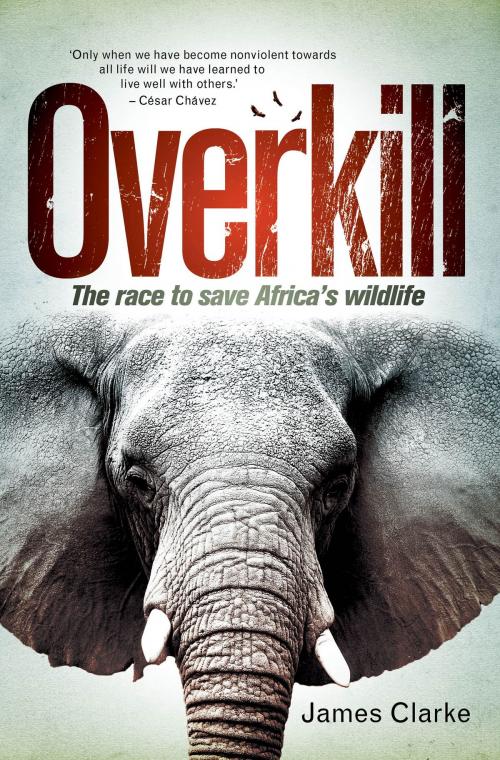Overkill
The race to save Africa’s wildlife
Nonfiction, Science & Nature, Nature, Environment, Environmental Conservation & Protection, Social & Cultural Studies, Social Science| Author: | James Clarke | ISBN: | 9781775845782 |
| Publisher: | Penguin Random House South Africa | Publication: | September 1, 2017 |
| Imprint: | Struik Nature | Language: | English |
| Author: | James Clarke |
| ISBN: | 9781775845782 |
| Publisher: | Penguin Random House South Africa |
| Publication: | September 1, 2017 |
| Imprint: | Struik Nature |
| Language: | English |
Ninety percent of the world’s megafauna (its larger creatures) have disappeared since humans migrated from Africa and fanned out across the rest of the world. Within a very short time the megafauna – mammoths, mastodons, woolly rhinoceros and the huge carnivores that preyed upon them were extinct. Only Africa seems to have escaped: not unscathed, but not entirely vanquished either. This book describes the history and extent of human impact on the world's wildlife (marine included), good and bad; it examines, in particular, the status of wildlife in Africa – the world’s last great megafaunal sanctuary; and it questions whether Africa’s wildlife has reached its lowest ebb, and whether it is about to witness the turn of the tide? The author sounds a note of cautious optimism: conservation initiatives have gained a new urgency in the 21st century, and in Africa and elsewhere are showing increasing resolve to tackle poaching. Vast transfrontier parks, many still in development, have the potential to provide a sustainable habitat for the continent’s megafauna. If we can muster both local and international support, name and shame the rogue nations, and build a practical conservation model that does not conflict with human needs, then Africa’s wildlife can perhaps be saved.
Ninety percent of the world’s megafauna (its larger creatures) have disappeared since humans migrated from Africa and fanned out across the rest of the world. Within a very short time the megafauna – mammoths, mastodons, woolly rhinoceros and the huge carnivores that preyed upon them were extinct. Only Africa seems to have escaped: not unscathed, but not entirely vanquished either. This book describes the history and extent of human impact on the world's wildlife (marine included), good and bad; it examines, in particular, the status of wildlife in Africa – the world’s last great megafaunal sanctuary; and it questions whether Africa’s wildlife has reached its lowest ebb, and whether it is about to witness the turn of the tide? The author sounds a note of cautious optimism: conservation initiatives have gained a new urgency in the 21st century, and in Africa and elsewhere are showing increasing resolve to tackle poaching. Vast transfrontier parks, many still in development, have the potential to provide a sustainable habitat for the continent’s megafauna. If we can muster both local and international support, name and shame the rogue nations, and build a practical conservation model that does not conflict with human needs, then Africa’s wildlife can perhaps be saved.















